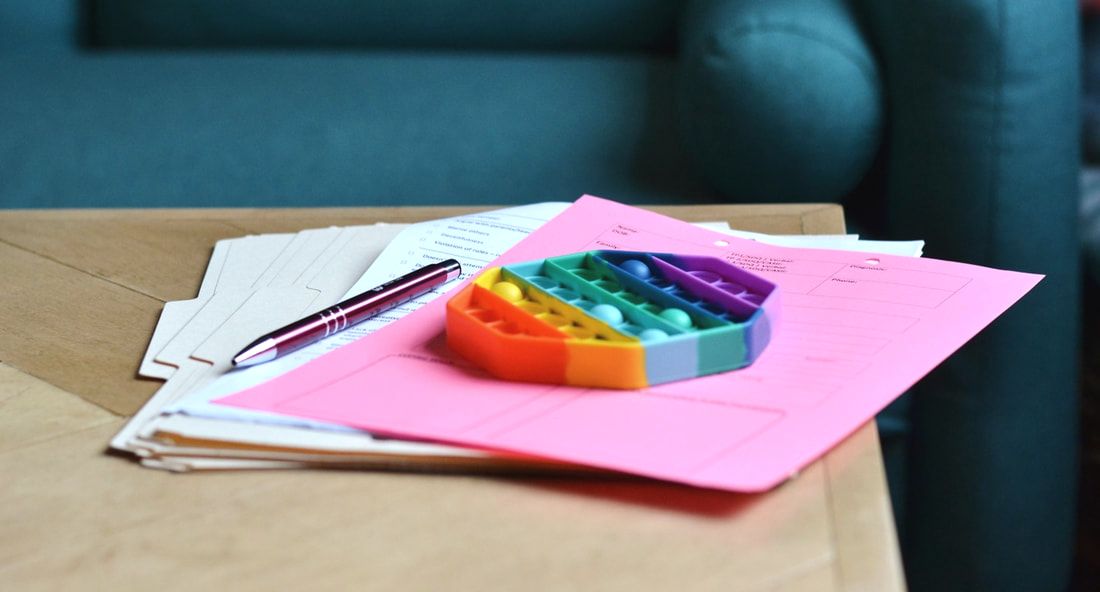|
So you’ve greeted the client, given a great informed consent, now it’s on to asking those millions of questions you need to in the diagnostic assessment session to get enough information to make a diagnosis. In Minnesota according to the Department of Human Services in order to have a comprehensive Diagnostic Assessment you need to include not only current and historical symptoms and mental health treatment but a comprehensive assessment of factors that may impact development and the presenting problem. Factors that need to be assessed include (but are definitely not limited to) information about meeting developmental milestones, any difficulties with development, trauma or maltreatment history, health history, family health and mental health history, academic functioning, and social engagement and resources. If you take insurance, getting all the information for the Diagnostic Assessment write up can be daunting in a short amount of time. Some pro tips include having families fill out intake forms beforehand answering questions about each area of assessment. You can also meet alone with the parent for a portion of time if you need information quickly and are worried the child will be negatively impacted by this process. However, insurance does state that the client needs to be present in some capacity for the assessment - which makes a ton of sense! We don’t want to diagnose children without getting their perspective of their difficulties. I mean, it is their life right? AND whether they agree or disagree with their caregiver about level of symptoms and impact on their life is full of rich clinical data! I wanted to share with you some of my favorite go-to questions to ask young people during the assessment phase Diagnostic Assessment clinical interview:
As always the language in these questions can become simplified or more complex depending on the age of the client or situation. If the child has parents who are divorced I add questions about divorce history, transition, and separate households. I also ask trauma questions and questions specific to symptoms the parent is identifying as the presenting problem. And lastly, if a client is uncomfortable with any of these questions - no problem! We skip it and move on! Although (if you take insurance) you need enough information for a diagnosis before beginning treatment, you always want to let the relationship lead the way. What about you? What are your favorite questions to get young people talking in assessment sessions? Drop your favorites below! Want a deeper dive into intake sessions? Check out this training HERE! Let's Connect - click here to join my email list!
8 Comments
Kathryn Streer Seidler
8/30/2021 11:18:06 am
Great questions! Thank you1
Reply
Ann
9/1/2021 06:12:38 am
Thanks Kathryn! Sometimes it can be so hard to know what to ask so I am glad these questions were helpful!
Reply
Cynthia
9/15/2021 07:36:52 am
Great resources, even for a seasoned LMHC. Thank you for your generosity and the sharing of your wisdom with others.
Reply
Ann
9/16/2021 01:03:01 pm
Thank you Cynthia! I am glad this is helpful to you in your practice!!
Reply
Deborah van der Westhuizen
10/28/2023 10:15:31 am
Please assist
Reply
Ann Meehan
10/30/2023 05:37:54 am
Hi Deborah! Let me know what I can assist with! The 20 questions are in the blog post. If there is anything else feel free to shoot me an email at [email protected]
Reply
First, I want to thank you for your blog which I love! You always have wonderful tips and ideas!
Reply
Ann Meehan
2/5/2024 05:52:32 am
Hi Manda! I am so excited you can use these tips and handouts with your clients! AND I absolutely LOVE these questions - thank you for sharing with this community!
Reply
Leave a Reply. |
Hi, there!I'm Ann Meehan, an LPCC, Loading... Archives
July 2024
Categories
All
|
Privacy Policies | Terms of Use | Disclaimer
Contact
[email protected] | Copyright Meehan Mental Health Services 2022
Contact
[email protected] | Copyright Meehan Mental Health Services 2022





